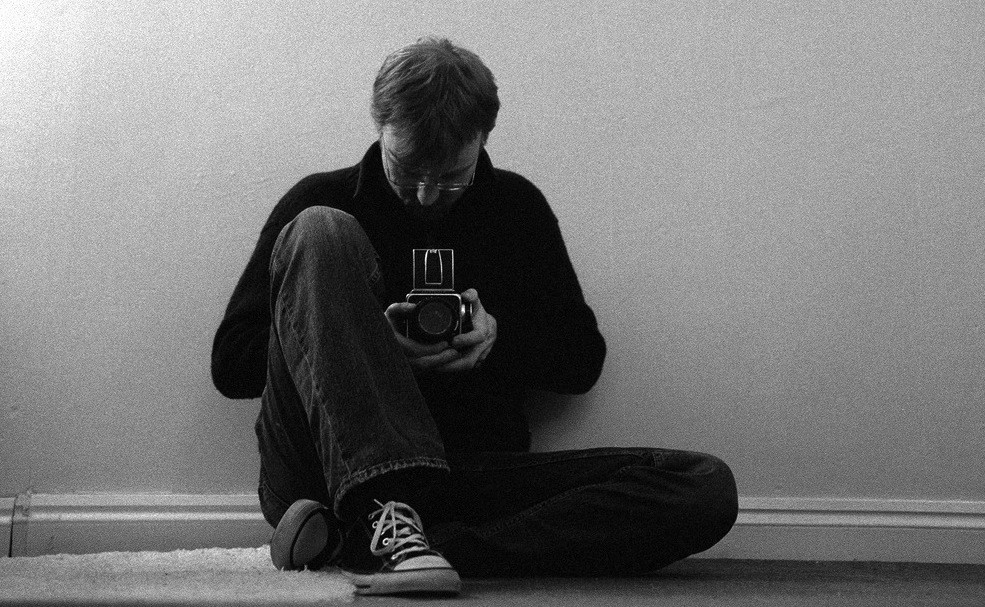Anonymous 6442 says: Bitch. Is retarded and a slut so if you into that then here you guys.
That’s one of the tamest captions on MyEx.com. It accompanies an image of a woman, standing naked in her bathroom, smiling, taking a picture of herself on her cellphone. Her full name, age, and home town are attached to the post. This is revenge porn. It’s technically legal in almost every state. And it’s more common than you think.
A 2012 survey of high school students in Houston showed that 28% had sent naked pictures of themselves via texting or email. When those teens get to college, their high school sweethearts might vanish, but those photos will still be on their hard drives. Considering the notoriously bad decision-making-skills of our age group, it’s not hard to see how someone might want to “get back” at an ex for some misdeed. Why not post those old naked photos for some catharsis? The submissions page on MyEx.com encourages you to “ADD SOMEONE. FEEL GOOD.”
And once you’ve been added, you’re theirs. According to the MyEx.com terms of service,
“Materials on this Website and through the Service have been prepared by us and by our users for general informational purposes only and are complete works of fiction. Any similarity or relation to any real person is completely coincidental. … the Company is hereby granted a worldwide, non-exclusive royalty-free irrevocable perpetual license to use such Submissions in any way it deems fit for any purpose whatsoever.“
If someone uploads your picture, the website claims the right to use those photographs however they’d like, and hiding behind the ludicrous presumption of “fiction” allows them to pretend that no one is getting hurt.
But people are getting hurt. Photos like this will come up in a simple Google search, ruining many people’s chances of getting a job. Most websites give victims the option to remove their photos, if they pay a $500 fee, and the websites can’t guarantee that taking down the photos will clean up the victim’s search results.
Aside from damaged reputations, revenge porn can even put victims in physical danger. MyEx.com even requires the uploader to provide where the victim lives — down to the city. Marianna Taschinger, who spoke to the New York Times about her experiences with revenge porn, watched a stalker sit outside her house in a car. She had to quit her job. Some victims even change their names.
And yet, very little of this is technically illegal. Why?
Current intellectual property laws in America state that, once you send someone else a photograph, you lose most of your rights. If I take a picture of myself, and I text it to you, that picture is yours now. You can do whatever you want with it. You can tweet it, upload it to Reddit, or wallpaper your room with it. It’s my intellectual property, but when I sent it to you I lost all control of its distribution. That’s the law.
And in most cases, that’s fine. But when there is a sexual component, the current legal viewpoint is inadequate. Posting a picture of me looking unappealing in the SciLi on the internet might annoy me, but it’s unlikely to put me in physical danger, ruin employment opportunities, or make me an unwitting sexual object for strangers across the globe. It seems clear from any sane standpoint that personal sexual photos should have special status under the law. Advocates for anti-revenge-porn legislation have dubbed the crime “non-consensual pornography.”
In an ideal world, every website hosting pornography (user-generated or otherwise) would force the uploader to agree that every person shown in the uploaded material consents to its distribution.
But some lawmakers aren’t convinced that criminalization of revenge porn makes sense. Once someone has sent a photo into the digital ether, perhaps they’ve lost the reasonable expectation of privacy. Although it’s true that the victim could have chosen not to take sexual photos in the first place, this shouldn’t absolve the uploader’s breach of trust. As it stands, the current system merely enforces victim-blaming and slut-shaming.
Opponents are right about one thing: A ban on revenge porn will be nearly unenforceable. Regulating what goes onto the internet has never been easy. And proving non-consent is sometimes even harder, as every highly publicized rape trial in recent memory has shown. Our society has a habit of blaming the victim, perhaps because we want to believe that bad things don’t happen to good people.
But the real bad people here are these crazy, vengeful exes. Stronger laws would make it easier to prosecute them, target the websites out there that specialize in non-consensual pornography, and maybe give these victims a moment of relief. They deserve it.

Again, my brilliant lil cuz…READ THIS!! Make “Revenge Porn” Illegal | Brown Political Review http://t.co/Awa00UCTIg
An excellent article. But you shouldn’t have named the website. This is a derivative of guerrilla marketing. Unfortunately, you just promoted the bad guys.
Clara Beyers latest essayfor the Brown Political Review Make “Revenge Porn” Illegal | Brown Political Review http://t.co/sIhjHB6DWJ
I’LL SEND ALL THE NAKED PHOTOS I WANT. (make revenge porn illegal now!) (read this thing I wrote!)
http://t.co/juvBKSd7rV